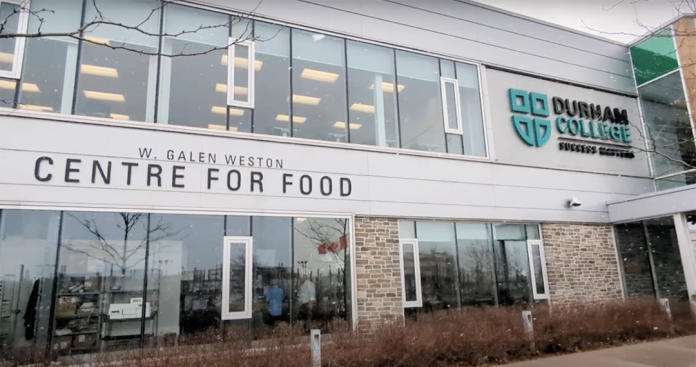A new full-time program is coming to Durham College’s Whitby campus this fall.
The Nutrition and Food Service Management program will teach students how to plan and manage a variety of diets and nutritional needs in healthcare and other food service settings.
Out of 13 new programs coming to the college in September 2024, Nutrition and Food Service Management is the only program offered in Whitby.
Kelly O’Brien, associate dean for the Faculty of Hospitality and Horticultural Science, credits an influx of provincial government funds for the new program.
“There’s a lot of government funding coming…for nutritional support in long-term care,” O’Brien said. “So I think it’s important that we lead the way in that.”
According to the associate dean, new programs endure an intense and lengthy research and review process to prove their viability.
A new program starts as an idea based on market research. After repeated review and refinement, the program is presented one last time and vetted by the college’s Board of Governors.
O’Brien said food literacy is an important aspect of this program.
The program aims to build nutrition knowledge, food service management and human resources skills.
“For us, it’s about changing the landscape and how we see institutional cooking and institutional food management,” O’Brien said. “We’ve added in the culinary lab and food literacy lab specifically, which will teach the students to learn where their food comes from.”
Students will spend time on the urban farms in Whitby and Ajax and the labs at the Galen Weston Centre for Food, the same building where Bistro ’67 operates.
The program also intends to minimize waste through recycling and working with community partners and campus wellness groups to feed vulnerable populations in Durham Region.
The campus’ biodigester converts food waste into nutrient-dense soil, which is used to fertilize the fields.
The college’s businesses, Bistro ’67 and the Pantry, were shut down for most of the pandemic, leaving the college with an excess of food. During this time, O’Brien said partnerships were built with organizations such as Community Care Durham.
The faculty will continue to work with those campus wellness groups and non-profits to serve the community through donations and hosting food literacy workshops.
“It’s a very holistic approach to what we do, and that’s the same with our food systems on campus,” O’Brien said. “The food that we grow on campus gets used in our Pantry, our business operations and our academic labs.”
More information about the program is available on the college’s website.




